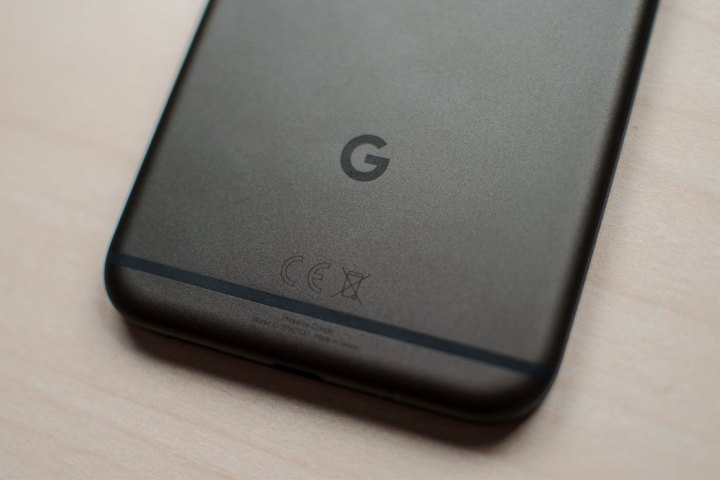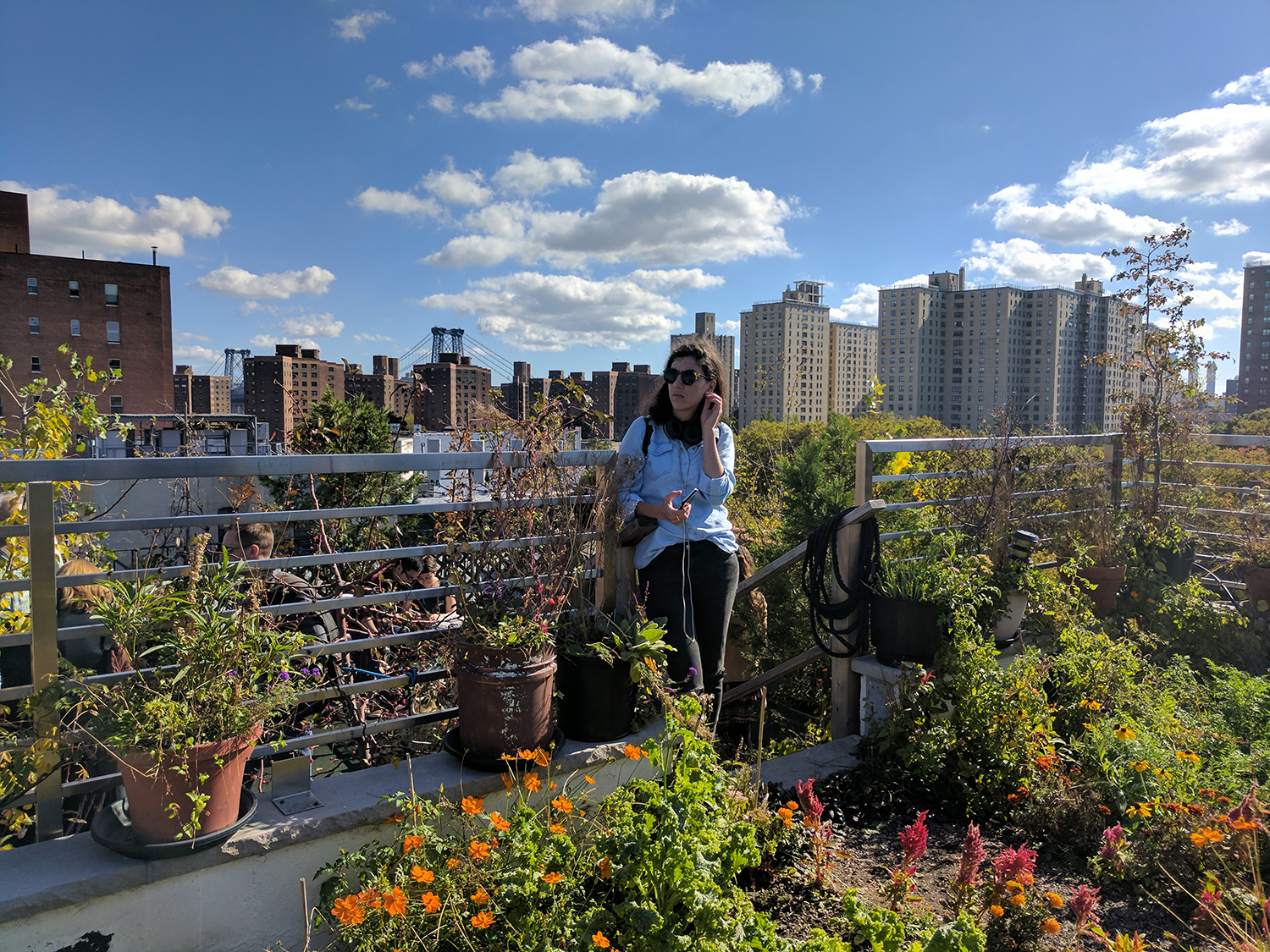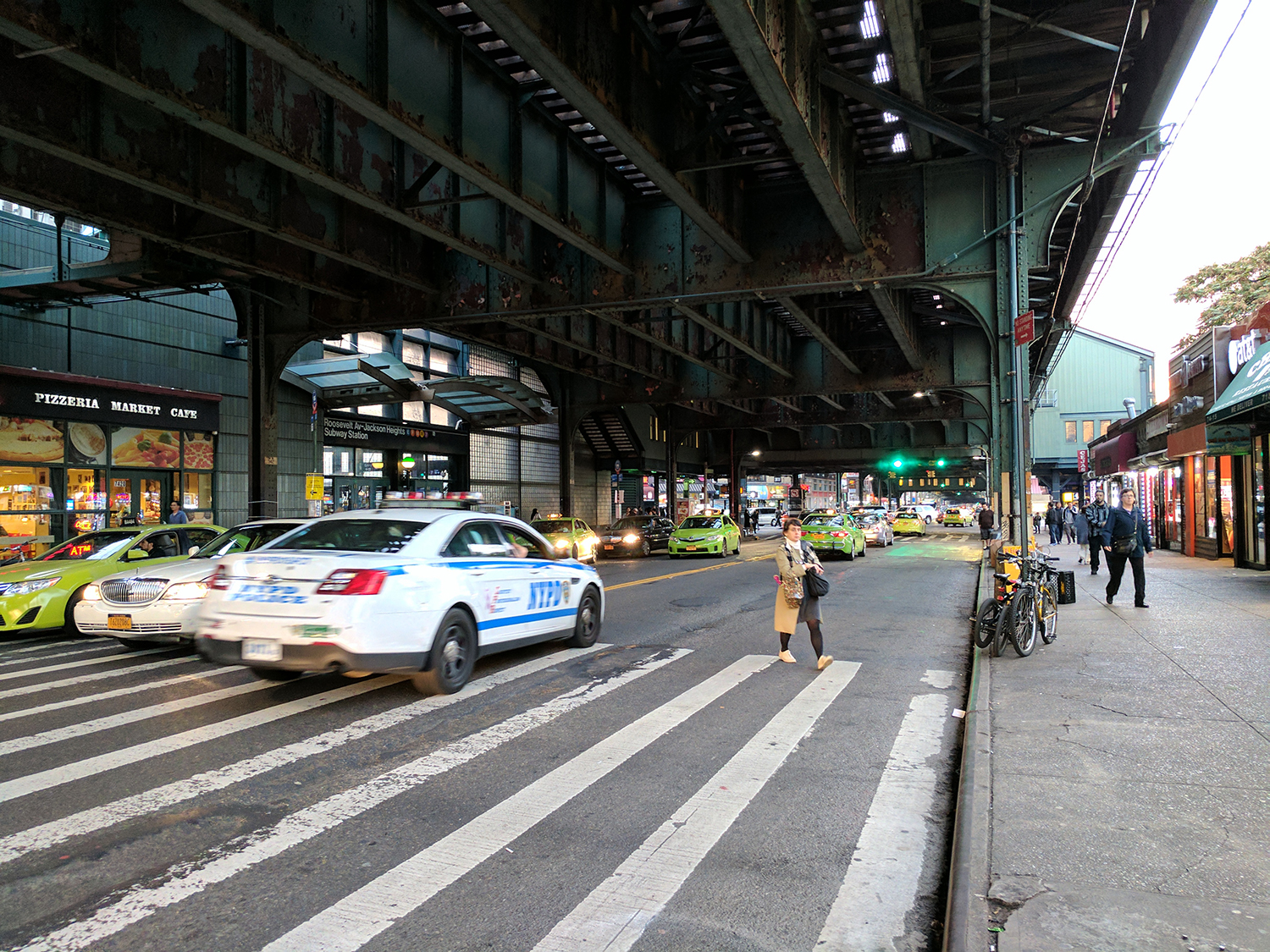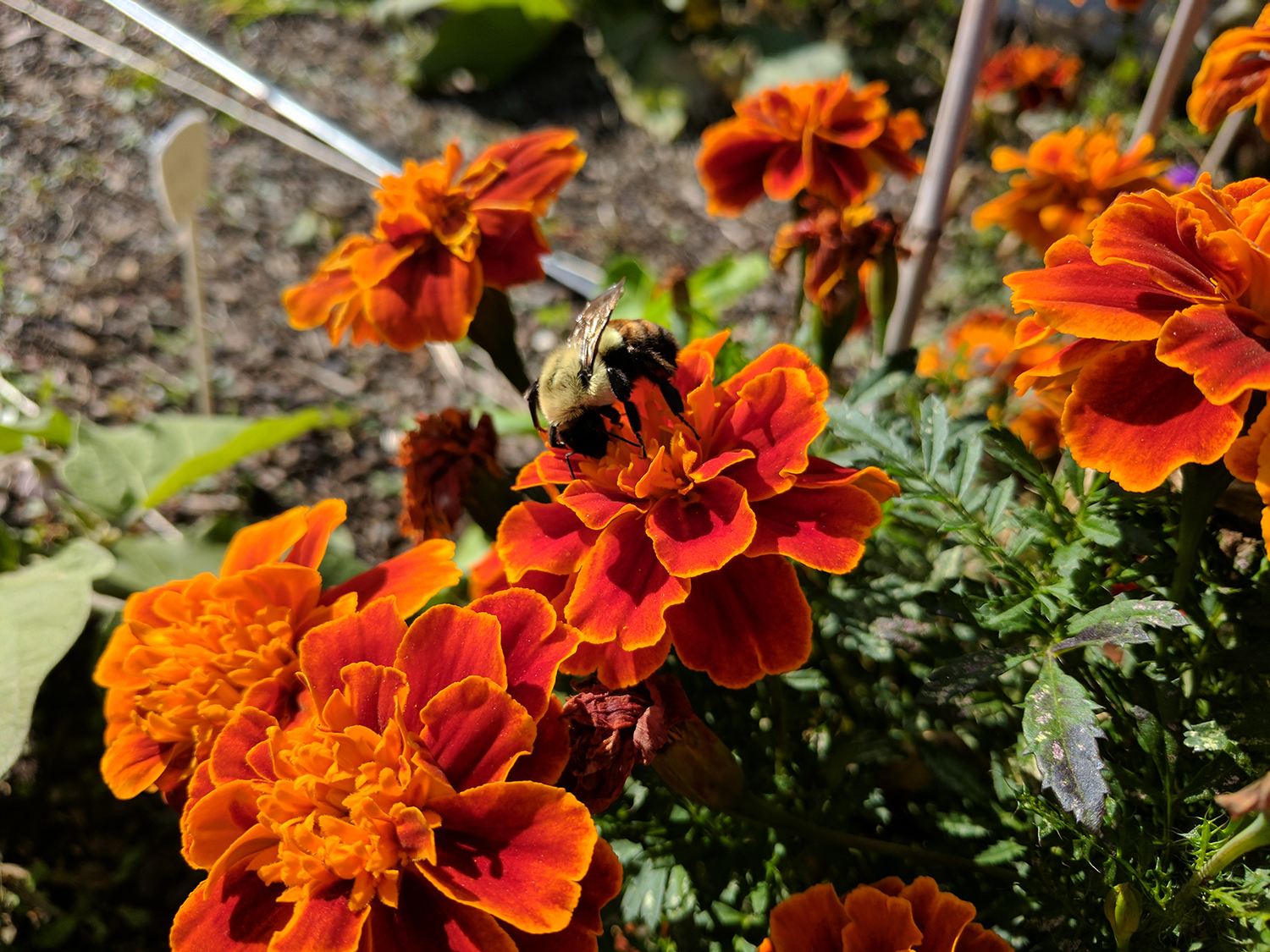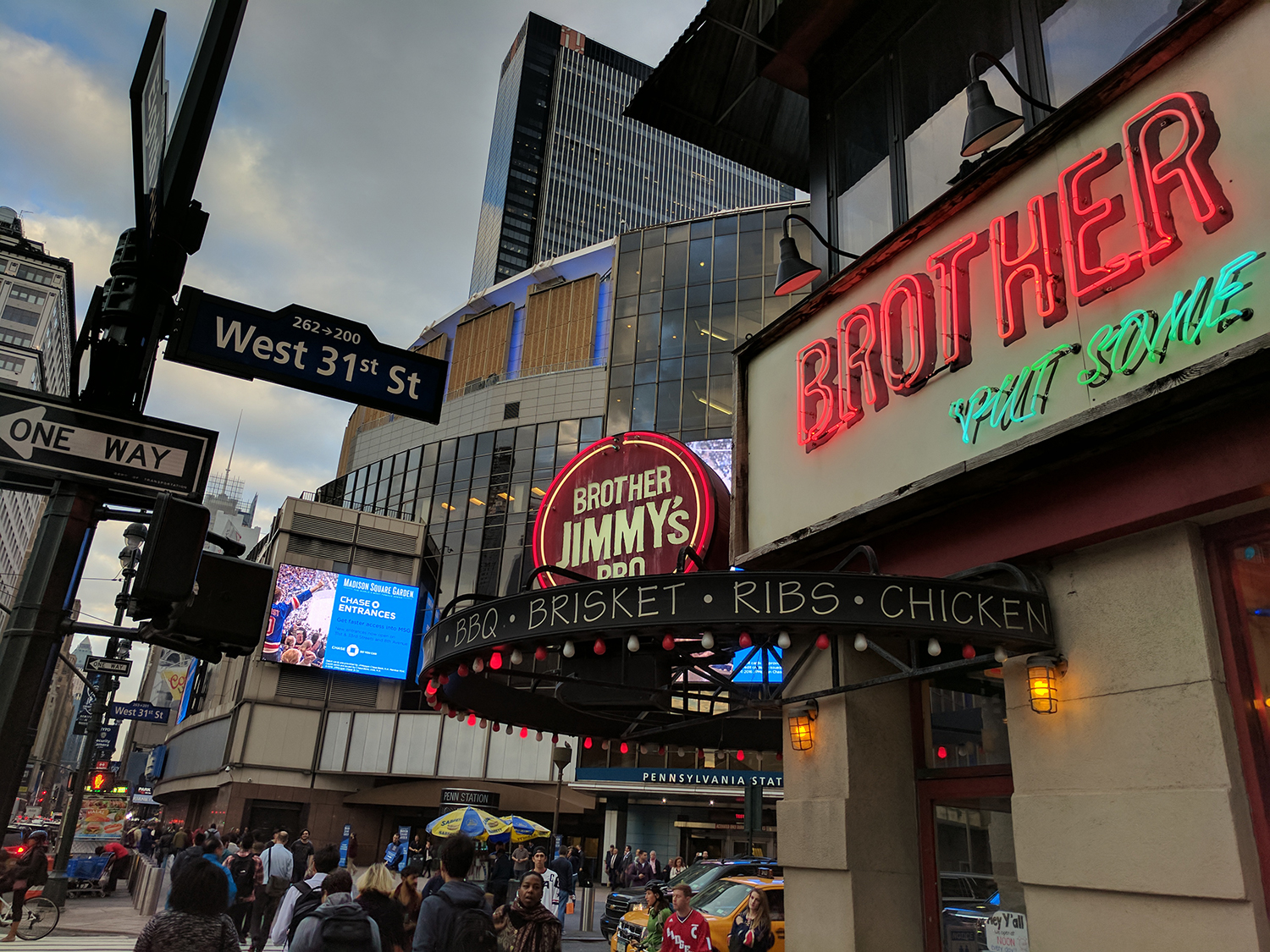- Pure Android is perfection
- Automatic updates to the latest software
- 24/7 customer support
- Fantastic camera
- Premium design
- More expensive than previous Nexus phones
- Not waterproof
Update: Google’s Back to School promotion is the best way to buy a Pixel right now, and we’ve added all the details in the pricing and availability section below.
Google’s Pixel XL is the Android phone we’ve always wanted. It’s as gorgeous, powerful, slick, and as easily upgraded as an iPhone. It’s the best Android phone of 2016 hands down. One question remains: Should you still entertain the thought of buying it more than six months after its initial release?
A familiar design with a bit of Google magic
Maybe it was that new phone feeling or the subtle little G for Google on the back of the phone, but the Pixel XL has a magic quality about it. This is it! The first Google Phone!
Just like the majority of Android phones these days, the Pixel’s body is mostly aluminum. It looks like a cross between an iPhone and the Huawei Honor 8, thanks to a mixed media design that uses metal and glass; it’s high-end with nice texture. The phone feels silky smooth against your fingers and provides an interesting contrast of materials.
Of course, there are two huge problems with glass: It picks up fingerprints and it’s very fragile. Luckily, the glass panel is small and located up at the top of the phone, so you’re not likely to touch it too much. It picks up fingerprints, but not as many as a Galaxy S6 or Galaxy S7. The part that gathers the most smudges and starts to look funky is the fingerprint sensor, which is also coated in glass.
The glass doesn’t reach all the way up to the edge of the phone, so it shouldn’t crack if you drop it on its corners. However, if it falls at a weird angle or plunges to the concrete glass-face-first, it’ll crack — and probably be a pain to replace.
We’re not really fans of glass-backed phones, so we’re glad the Pixel is mostly metal. Still, you’ll probably want a case if you’re a klutz or you hate fingerprints. Luckily, Google lets you design your own Live Case with art, maps, or your own photos for $40.
As far as comfort goes, the Pixel XL may be a big 5.5-inch phone, but it is comfortable to hold. It’s about the same size as the iPhone 7 Plus, but a little thicker and shorter. The phone’s edges have a slight ridge to them for added grip, and the metal feels sturdy. The volume rocker and power button are easy to locate and press, and the power button has a nice texture to it so you can tell which button is which.
For ports, there’s a headphone jack at the top of the phone, a SIM card slot on the left side, and a USB Type-C port at the bottom along with the speakers. After a few months with the jackless iPhone 7 Plus, it was nice to plug our trusty headphones right into the 3.5mm jack. It’s so weird to find it at the top of the phone, though. What year is it? 2011?
Powerful specs and smooth performance
Google made one hell of a phone. After more than six months of using the phone every single day, we have yet to run into any serious stutters or hiccups with the way it performs. The sharp Quad HD screen with its 5.5-inch size and 2,560 × 1,440 pixel resolution looks great. It’s perfectly luminous and colorful. It looks gorgeous next to the screen on the iPhone 7 Plus and less over-saturated than the Galaxy S7 Edge.
The Pixel XL runs silky smooth too. Apps open quicker than ever; moving between home screens is smooth and fast; and content loads and scrolls without any stutters on apps like Twitter and Chrome. Everything just works. That’s not just thanks to the Qualcomm Snapdragon 821 chip powering the device — it’s also thanks to the deep software optimizations. Of course, phones like the Snapdragon 835 offer slightly faster performance at this point — but that’s due to the Qualcomm Snapdragon 835 chip, which is simply newer and faster.
Google’s Pixel XL is the Android phone we’ve always wanted.
When we first set up the phone, we downloaded 20 plus apps and dozens of songs for offline listening all while using the phone and setting up apps. The Pixel didn’t have a single problem through all this stress testing, though it started getting pretty hot. It eventually got so hot that it stalled for a few minutes and we had to restart it. But that only happened once. We had a similar heat episode when we first got our standard Pixel, but it also disappeared.
Since then, we’ve had zero problems with it, and it doesn’t run hot during ordinary use. That’s all thanks to the Qualcomm Snapdragon 821 and the 4GB of RAM. The Pixel comes with 32GB of internal storage, and there’s a 128GB variant as well — sadly, there is no MicroSD card slot. However, you get unlimited photo storage with Google Photos at full resolution on the Pixel, so you should be set.
In case you want some benchmarks, we put the Pixel XL through a bunch of them:
- 3D Mark Slingshot: 2,313
- Geekbench 4: 3,945 multi-core, and 1,588 single-core
- AnTuTu: 138,946
In comparison, the Samsung Galaxy S7 scored 134,203 on the AnTuTu test and the LG G5 managed 134,074. The Pixel XL runs slightly ahead of two big Android competitors from 2016. Meanwhile, the iPhone 7 has an AnTuTu score of 178,397, which clearly blows every Android phone out of the water. The A10 Fusion chip from Apple is sure to perform better, but benchmarks aren’t the end-all and be-all of performance. You’ll be more than satisfied with what the Pixel offers.
Pure Android perfection
Android O is coming! In late March, Google unveiled the Developer Preview of the next version of its smartphone operating system. It’s not officially released yet, so consumers are best off sticking to the current version of Android, but intrepid enthusiasts looking for the latest and greatest can download and manually install the next-gen software today.
Meanwhile, even with the current Android Nougat, there’s nothing like pure Android on a Pixel phone. Finally, we see a true marriage of hardware and software on one Google-made device. Android has never run smoother or looked better. The Pixel has a special launcher and unique features that you won’t find on any other Android phone. The entire experience is very polished.
There’s no longer an icon for the app drawer, but you can still see all your apps with a single swipe up from the bottom of the screen. It feels smooth and intuitive. The lack of the app drawer icon unclutters the main interface, too. So all you see are the back, home, and multitasking icons.
The Google search bar is artfully hidden, too. To access it, you just tap on the colorful G logo in the upper corner. Out pops your search bar and the microphone for voice queries. Google Now cards are also just a swipe away, as always. It feels more like iOS than ever before, so even long-time iPhone users will feel at home.
Elegant design tweaks continue throughout the interface, including several that won’t be available on other Android phones when Android 7.1 drops. The new caller ID screen, the black notification drawer with a blue brightness slider, and the blue accents throughout the OS, like in the Settings menu, are exclusive to the Pixel.
One of the more interesting additions is Quick Actions, which is similar to 3D Touch on iOS. Press and hold an icon and you’ll get shortcuts like “New Incognito Tab” on Chrome. You’ll have to wait for developers to add shortcuts for their apps, as right now only a handful of Google apps utilize the API.
There’s nothing quite like Pure Android on a Pixel phone.
Android also now has a native night mode called Night Light. It removes blue hues from your screen to help you sleep. This is one of my personal favorite additions. It’s just like Night Shift Mode on iOS, and it works just as well to help your eyes rest at night. You can also turn on fingerprint gestures on the device, so you can bring down the full notification drawer with two swipes. We don’t want to see this feature bloated with all sorts of gestures, but it would be killer if you could scroll a webpage or ask via the sensor on the back.
Android 7.0 brought better functionality to the OS, and 7.1 refines on them further. Pixel offers the most fluid Android experiences we’ve seen to date.
Assistant is really smart, but it’s not like Her … yet
If you haven’t noticed, the navigation buttons are now solid white on the Pixel. There’s also a ring around the home button, and that’s to let you know that Google Assistant is available. Assistant is Google’s artificially intelligent bot that can help you with almost anything: search queries, checking your emails, translating text into other languages, and more. It’s essentially a more personalized Google Now, and it learns from you the more you use it.
One of our favorite features is “My Day,” which you can trigger by saying “good morning,” once you’ve activated Assistant (say “Okay Google” or long-press the home button). Assistant will then read out your daily schedule, the weather, and more, but the best part is that it will automatically launch a playlist of news podcasts — ours started with NPR’s morning briefing, and continued with Fox News and so on.
It’s one of those features you don’t know you need until you try it.
While at launch you could only talk with Assistant, you can also now type to it as well, thanks to the little keyboard icon on the bottom left of the screen. That’s pretty helpful — you’re not always in a position to talk to your phone, and being able to type means you can still talk to Assistant when that’s the case.
Google has been increasing Assistant’s capabilities since launch — you can now control your smart home appliances with Assistant on the phone, for example, and soon you’ll be able to get context from the images you see with Google Lens.
A killer camera
You can’t go wrong with a high-end smartphone camera these days — they’re all pretty fantastic. The Pixel XL’s 12.3-megapixel camera with larger 1.55 micron pixels is outstanding. It takes splendid shots that rival the Galaxy S8 Edge, LG G6, and iPhone 7 Plus. It focuses super quickly and processes the automatic HDR+ mode with incredible speed.
We were blown away with the level of detail in photos. In one close up of a bee on a flower, you can see the detail of its tiny iridescent wings and fuzzy body when you zoom in on the picture. That’s not something we’ve seen from a lot (any) phones before. We were also favorably impressed with the shots we took of an underground garden at Lowline Labs in NYC.
Like many other Android phones, the Pixel XL does tend to boost the colors and saturation in images for a more heightened effect. The resulting images are more natural looking than what you’d get with a Galaxy S7 Edge, but less natural than images taken with the iPhone 7 Plus. A few shots turned out more blue than they really appeared in reality, but not by too much.
In low-light scenarios, images are more colorful and bright, but a little less sharp than images shot on the iPhone 7 Plus.
Several features in the camera app are exclusive to the Pixel, such as a manual exposure slider, focus lock, tap-to-focus, and white balance — more options are always a good thing, but is it too much to ask for a timelapse setting? It is noticeably absent.
In daylight, you’ll hardly ever have an issue with the camera, and the manual exposure option is a godsend for those times when the lighting is tricky. You can also use SmartBurst to capture multiple photos at once, or make a GIF.
There’s even a fun lens blur feature that mimics the effect you get from the dual cameras on the iPhone 7 Plus with a nifty blurred background. It’s tricky to use. You select lens blur from the hamburger menu in the camera app, take the picture, and then you have to move your phone slowly upward with rock steady hands. Keeping it steady is hard, and we often failed to capture the image on time. However, the blurring did turn out well when we managed to do it right.
We were blown away with the level of detail in photos taken with the Pixel XL.
The iPhone 7 Plus’ camera wins against the Pixel XL on a few fronts: 2× hardware zoom, natural colors, and effortless lens blur DSLR-style effects. However, with ordinary use, the two cameras are more or less equal based on our initial testing.
When it comes to video, the Pixel can take 4K videos at 30 frames-per-second, though the new feature is the gyro stabilization technique. It grabs gyro data about 200 times a second for so you end up with a smoother video. Videos are indeed smooth and shake-free, but you have to watch out when you turn — they tend to look a little too mechanical, as though a robot was swiveling in place. If you make sure you turn slowly, it doesn’t look as robotic.
The icing on the cake of an already excellent camera is unlimited full-resolution Google Photos storage in the Photos app. It’s a Pixel exclusive, so all your Android-using friends should be deeply envious. Unlimited photo storage means you should be fine with 32GB of storage on the Pixel XL — unless you download tons of music, videos, and big apps.
Battery life is normal
Most phones last about a day to a day and a half and the Pixel XL is no exception. On the first day, I killed the battery very quickly because I couldn’t put the Pixel down. Once I cooled my jets, the battery life started to even out to around a day. You’ll always have to charge it up at night, putting it more or less in the same boat as the iPhone 7 Plus and the Galaxy S8.
It does have quick charging tech with that USB Type-C port. I love charging my phone up to nearly full in about 15 minutes. It’s brilliant, albeit common on Android. The iPhone 7 Plus doesn’t have that party trick.
Warranty, built-in customer service
Google offers a standard one-year warranty on the Pixel XL. You can sign up for device protection for $100, but you won’t have to worry about high repair costs after damaging your phone. You’ll also get a replacement device as quickly as one business day after your claim is approved. To file a claim through Google’s partner Assurant, just call or go to mydeviceprotect.com. Each claim is subject to a deductible — $80 for Pixel and $100 for Pixel XL — and you can file up to two claims of accidental damage coverage within the 2-year term.
Quick repairs and replacements aren’t the only perks you get if you buy the Pixel XL. Much like Apple does with the iPhone, Google offers 24/7 support for your Pixel, in case you run into any issues. You can do this by visiting the Settings menu, and you can trigger a call or start a chat with a specialist. When you’re having more serious problems, you can share your screen to help get issues resolved faster. Once you give your number to support in the Settings app under Support, you’ll get a call from Google. We spoke with a Google support rep over the phone to see how the experience works. The rep was helpful and answered all our questions just like Apple’s support staff does in stores and online.
It’s an excellent idea to offer customer support right on the device. It really puts the Pixel ahead of most Android phones.
Security and software updates will come!
Even more important that customer service, the Pixel smartphones, like the Nexus line, also gets fast security and Android version updates from Google. The updates automatically download when you’re not using your device (like at night), so that you never have to wait around for the new software to download or for it to finally arrive on your device.
That means you’ll never be vulnerable to security flaws or hacks for extended periods of time because necessary patches will arrive immediately, and you’ll get new features first.
Millions of Android phones are still vulnerable to hacks like Stagefright and Heartbleed, which allow hackers to remotely take over your device, steal passwords, and check out your private information. That’s dangerous and it’s wrong. Google is doing the right thing with its Pixel phones and all of its partners should take notice. Timely updates give the Pixel XL a leg up over the competition, as carriers and manufacturers are typically slow in issuing updates.
Surprisingly, Verizon has come out and said it will not “stand in the way” of updates — your device will get it straight from Google, even if you buy it from Verizon.
Availability and pricing
Since release, the Pixel phones have proven popular and, unfortunately, very difficult to find. Nearly a year later, Google finally appears to have a stable stock going — with the Pixel 2 on the horizon, the firm has already started slashing prices. The discounts on offer as part of Google’s Back to School event are listed below:
- 32GB Pixel XL $569 (down from $770) or $23.71 month for 24 months
- 128GB Pixel XL: $669 (down from $870) or $27.88 per month for 24 months
The phone is a Verizon carrier exclusive, but you can buy it unlocked from Google and use it on any network. Google offers a payment plan where you pay the phone’s total cost in monthly installments over two years.
Our Take
The Pixel XL (and standard Pixel if you want a smaller phone) is our favorite Android phone, and the best one you can buy right now.
Is there a better alternative?
There are a few phones out there that seriously give the Pixel XL a run for its money, notably the Samsung Galaxy S8 and the LG G6. While more powerful than the Pixel XL, the other devices don’t offer the same stock Android experience, nor do they offer timely security and version updates.
The Pixel XL is the best Android phone we’ve ever used and the only one that has ever come this close to dethroning the iPhone. If you’re cheap, on a budget, and don’t care about things like software updates and customer support, you’re welcome to check out the ZTE Axon 7 or the OnePlus 5, both of which offer similar or better specs for about $200 to $300 less. However, if you want the best Android experience, buy the Pixel XL.
If you’re on the fence between the iPhone 7 Plus and the Pixel XL, you can’t go wrong with either. They are the two best phones that you can buy today — period. There’s also always something new on the horizon in the tech industry, so do keep in mind that the Pixel 2 is likely coming in October and you may be able to find the 2016 Pixel at a lower price.
How long will it last?
The Pixel XL should last you at least two to three years. Since it gets automatic software updates and security patches directly from Google, it is the most future-proof Android phone on the market.
Should you buy it?
Yes. This is the Android phone we’ve been waiting for. This is the one to buy — but do get it unlocked from the Google Play Store. We’ve come to love the Pixel for every day use, and Google has proven that Assistant is a serious contender in the digital assistant space. We also have yet to run into any serious performance issues — even after six months of use. This is a great phone — but if you’re in no rush to buy, you may want to wait for the second-generation Pixel, which will come out later this year.
Update: More than six months after its initial release, we take a look to see if the Google Pixel XL is still a serious competitor.



